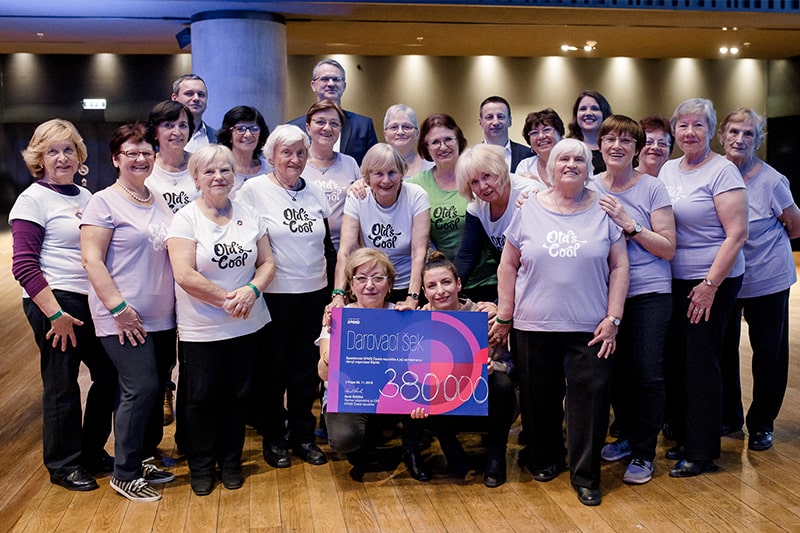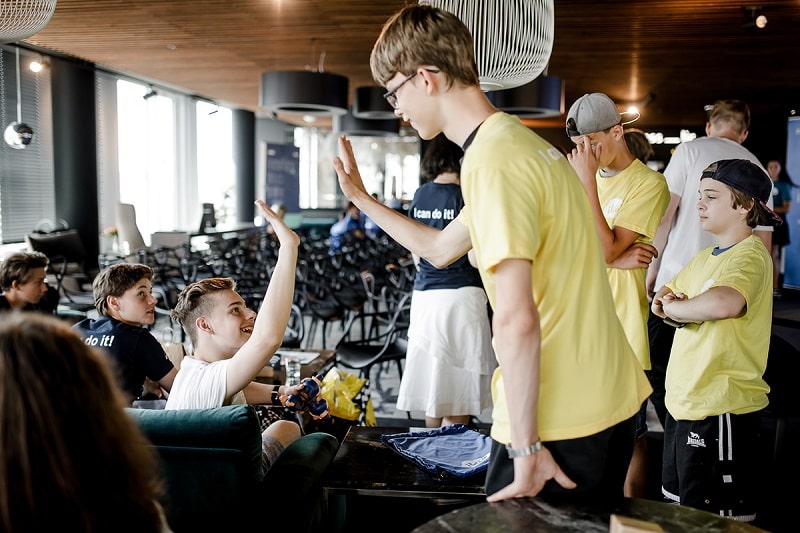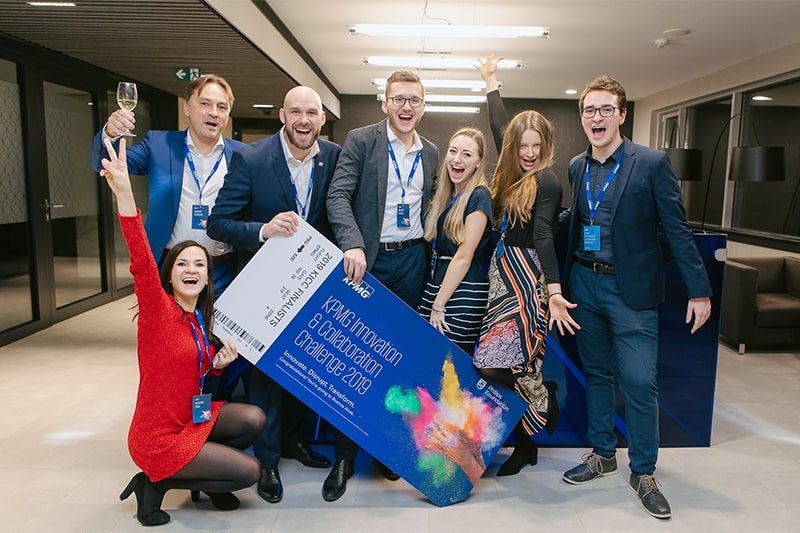We help with what we do best
Promoting responsible and sustainable entrepreneurship, we aim to set an example in the communities in which we operate by focusing on two key areas. We support and develop responsible and sustainable entrepreneurship as well as the involvement of young generations, and we help non-profit organisations and social businesses increase the efficiency of their operations. We thus contribute to societal development through our professional knowledge and skills, while at the same time offering to our employees ample opportunities to further advance their skills.
Path to the sustainability
Utilising our professional knowledge and competence, we accompany non-profit organisations and social businesses on their path towards sustainability. With the expertise of our employees, we help several non-profits and social business find new approaches to the resolution of their problems, while at the same time furthering our employees’ know-how and practical experience.
Non-profit organisations and social businesses may take advantage of our expertise on their path towards sustainability by participating in professional training courses and applying for service grants. We aim to react to the current needs of the organisations and adapt our training offers accordingly.
A comprehensive overview of our professional programmes and all registration information can be found on the programme’s dedicated web pages at Path to the sustainability.
Training courses
Experts from our staff offer expert training courses to representatives of non-profit organisations and social businesses within the KPMG Business Institute. The courses focus on audit, tax and legal issues, but also on entrepreneurial thinking and customer relationship managements.
2016 
During fiscal year 2016, we trained a total of 195 non-profit sector representatives in 9 professional training programmes. Our employees devoted 95 hours of their time to the preparation and leading of educational courses for the non-profit sector.
2017 
During fiscal year 2017, we trained a total of 210 non-profit sector representatives in 10 professional training programmes. Our employees devoted 200 hours of their time to the preparation and leading of educational courses for the non-profit sector.
2018 
In fiscal year 2018, a total of 280 non-profit and social business representatives from 136 individual organisations participated in 11 training courses. Our employees dedicated 199 working hours to preparing and teaching these educational courses for non-profit organisations.
2019 
In fiscal year 2019, a total of nine training course programmes were attended by 211 representatives of 90 non-profit organisations. Our employees dedicated 136 hours of their time to prepare and teach these courses for the non-profit sector.
We react to the non-profit sector’s current needs and always try to incorporate feedback from course participants. Hence, every year we adjust the programme as well as the particular focus of our courses. Hence we now also offer a course on marketing communication for non-profit organisations.
Why do our lectors get involved in the courses? What, in their opinion, is their greatest benefit?
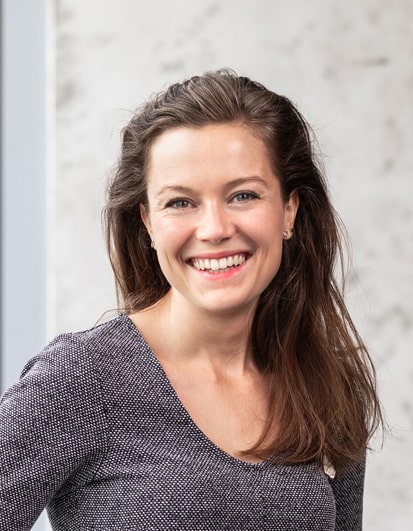
Adéla Půrová (Head of Content Marketing)
„Non-profit organisations play an important role in our country. They cultivate the environment and expose problems that society either doesn’t want to see or can’t solve. They really do not deserve being belittled or overlooked. Correct and effective communication can help them be seen and impress the right places. I am delighted that KPMG is not trying to act instead of the non-profits but instead helps them stand out and function more effectively.“
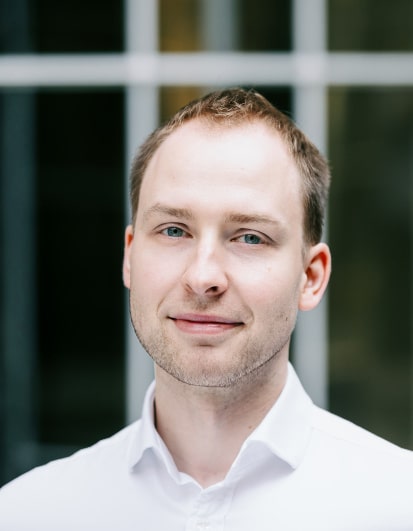
Ladislav Karas (attorney-at-law, KPMG Legal)
„By helping those involved in the non-profit sector we contribute to the improvement of the environment surrounding us.“
Advisory and pro bono services
With our services, we help non-profit organisations achieve higher levels of professionalism and effectiveness. We provide our audit services to around 20 organisations.
In fiscal year 2017, we provided 1866 hours of work free-of-charge; in 2018 it was 2282 hours, and in 2019, 1838 hours.
Service grants
Our advisory services aiming to increase the efficient functioning of organisations are in high demand. We have come up with a new opportunity to extend our help to organisations, this time through what we call service grants.
In the past financial year we awarded six service grants to non-profit organisations. Through the grants we are able to provide our commercial services for a symbolic fee to selected non-profit organisations. In 2019, the services we offered included:
- accounting advisory
- tax advisory
- legal advisory
- strategic management and customer experience advisory
- financial analysis
- setup and optimisation of finance and reporting processes.
„The project was very beneficial for us. It simplified and sped up our work with individual budgets. To both ladies from KPMG, our heartfelt thanks for their cooperation.“ Diakonie ČCE
Mentoring programme
After a year-long break, in 2019 we renewed our mentoring programme offered to non-profit organisations. This programme interconnects our employee development programme with the professional help we offer to the non-profit sector.
Volunteers from our talent programme help representatives from the non-profit sector find suitable approaches to concrete problems pertaining to their professional expertise.
The involved non-profit organisation hence receives professional assistance, and our employees can at the same time improve and hone their knowledge and skills that they need for their further professional growth.
In fiscal year 2019, ten non-profit organisations participated in the programme.
„Our cooperation was professional, friendly and highly beneficial. Thanks to the programme, we were able to take care of matters for which we didn’t have the relevant know-how. The mentors’ approach was authentic, and from our cooperation, I came away with the pleasant knowledge that a certain long-lasting partnership had begun.“ Prostor Pro, o. p. s.
Partnership
At the end of every fiscal year, our employees vote on the non-profit organisation that we partner with in the upcoming year. Our partnership consists of educational courses, professional advice, volunteering, and of course also financial help.
For 2019, our employees picked Elpida, an organisation that helps seniors remain self-confident, accepted and respected members of society. Elpida brings to life projects that support the active involvement of seniors, runs educational and cultural centres and a senior help-line, and publishes a magazine titled Vital.
In fiscal year 2019, we provided to Elpida:
- legal advisory
- consultations on GDPR
- consultations on data administration and reporting
- marketing and PR consultations
- educational training
- articles in Marwick magazine (Dobrý den, tady Linka seniorů, Oldtubering aneb Jak senioři dobývají sociální sítě),
- volunteering days spent together with our employees as part of our DobroDays
- a booth to sell Granny’s Socks at our Christmas market
- CZK 384 000 collected in our holiday fund drive, with total financial support amounting to CZK 588 021
- tickets to our non-profit cinema screenings and Divadlo ABC’s performance of the play Listopad
- to the Elpida Choir, the chance to perform with Václav Havelka at our Christmas Party at Forum Karlín.
School of Responsible Business
With the expert knowledge and skills of our employees we also aim to support and develop social engagement and responsible approaches to entrepreneurship among young people. We are working on the creation projects to familiarise young people with sustainability and responsible entrepreneurship, develop ideas to resolve pressing social problems, and form upcoming generations.
iKid
iKid, teaching kids how to do business, is an educational project for children aged 10 to 14 years. By participating in the project, children get an idea about how business works and learn what it takes to bring a new product onto the market.
Within the six months of the competition, the young innovators meet ca. once a week with mentors, and in five subsequent steps find out how to bring their own start-up company to life.

Generating ideas

Market search

Creating prototypes

Marketing

Final presentation
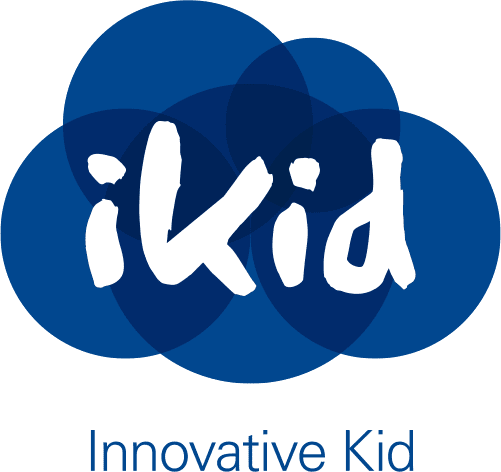
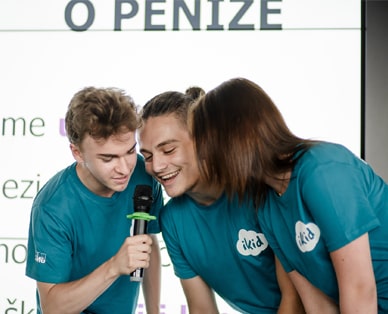
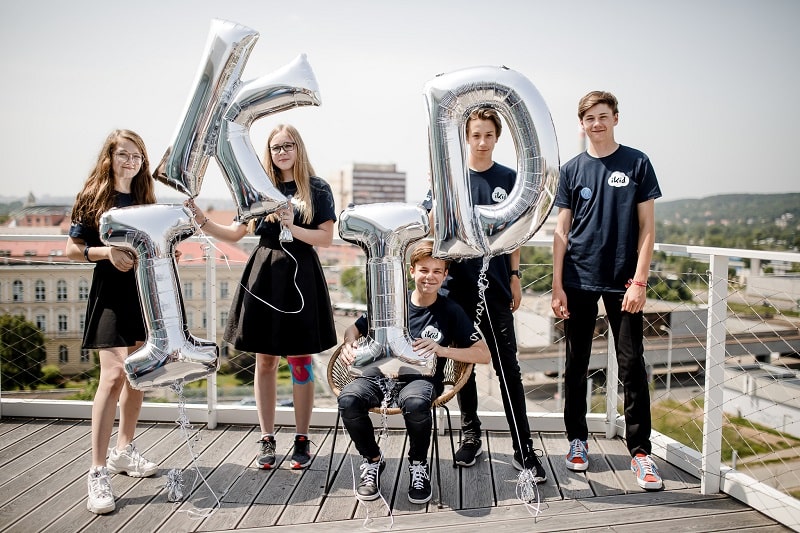
A mentor well versed in the business environment closely works with the children. During the project, the children have the opportunity to participate in workshops with business experts and to go on excursions to interesting companies.
The first year 
- 8 teams,
- 4 schools,
- 46 children,
- 8 functioning prototypes,
- 8 business mentors
The second year 
- 9 teams,
- 7 schools,
- 53 children,
- 9 functioning prototypes,
- 9 business mentors
The third year 
- 10 teams,
- 10 schools,
- 65 children,
- 10 functioning prototypes,
- 10 business mentors
The fourth year 
- 14 teams,
- 13 schools,
- 78 children,
- 14 functioning prototypes,
- 15 business mentors
Children want to help through technology
The jury valued most highly that Helpness teaches philanthropy to young people and offers real results at the same time. The EKO Gymnázium, a two-time winner in the competition, has already agreed to cooperate with a local senior citizens’ home. “The aim is to link generations and to create a helping community. To operate, we’ll be raising money through the sale of what we call DobroBoxes – packages containing products crafted by seniors,” Sylvie Schmiedová, the winning team’s teacher describes the projects main idea. “And in school, we see the immense progress of all the kids that have become involved in iKid,” she adds.
How to mawke tutoring easier
Unlike many adults, children are not afraid to use modern technology, as every year becomes obvious through iKid’s other successful projects. This year’s second place went to the iDys app, the brainchild of students from Prague’s Ohradní elementary school. The app helps children with specific learning disabilities and contains many learning tools adapted for various subjects and according to student needs and wishes.
Bronze went to the Students for Students application, thought up by students of the Masarykova elementary school in Prague. The app brings together those who need tutoring with those who are offering it. With their idea, the students reacted to the fact that about 70% of their schoolmates need tutoring but that they are often not happy with its quality and high price. The jury awarded a special prize to Tyfl-Ex, a headband for the vision impaired that alerts its users to head-level obstacles in their path, thought up by students of the František Forman elementary school in Ostrava.
“The new generation sees opportunities especially in technologies, but for them, human beings still come first at the same time. What’s especially nice is that they are inspired by their surroundings, and thus want to help seniors, the disabled, and fellow school mates who are struggling in class,” so Karel Růžička, KPMG’s partner in charge of CSR in reaction to the competition’s results.
Successful projects take time
Behind all the of iKid’s success stories lie many months of hard work and efforts. Teams have to proceed through all phases of their business plan, including market research, price setting, marketing as well as a final presentation before the competition’s jury. They are supported by mentors from the business world. “Our goal is to support young innovators, provide them with the know-how and the self-confidence they need to develop their own start-up,” Karel Růžička explains the purpose of the competition.
The mentor of the winning team was Vojtěch Krmíček from the South-Moravian Innovation Centre: “I was surprised how far along the kids were able to get just in a couple of months; from the idea and its testing, all the way to the real start-up of the project and the linkage of people who need or are willing to offer help, arriving even at several sold DobroBoxes.”
The finals featured 14 teams from different parts of the Czech Republic. Winners were decided by a jury made up of Lenka Kučerová (director of the StarLift Foundation), Vladimír Hruban (Partner Technology Strategist at Microsoft), Petr Horký (editor of Respekt magazine) and Jan Binar (CEO of McCANN Prague). The finals took place on 11 June 2019 at the Prague Business Link venue.
KICC
KPMG’s Innovation & Collaboration Challenge (KICC) is an international competition offering teams of university students the chance to deal with and resolve current global problems. Students are presented with actual case studies from the business world. Then, their task is to analyse the presented data, compile their approach to the problem and then present their solution in English to a jury of KPMG experts.
In the national rounds this year, eight teams attempted to find the best approach to the following question: „What innovations would help to empower people in disadvantaged communities to take control of their own health and well-being?“ The teams came up with solutions for selected companies and organisations. Their ideas were to innovate, interrupt or transform the entities’ current business model and could involve new processes, technologies or services.
On the day of the competition, the teams have three hours to prepare their presentation which they as consultants present to the KPMG experts. The winning national team goes on to compete in the global finals, which this year took place in Buenos Aires, Argentina.
Matyáš, a member of the national winning team Last Minute, has written about his experience at the international finals here.
